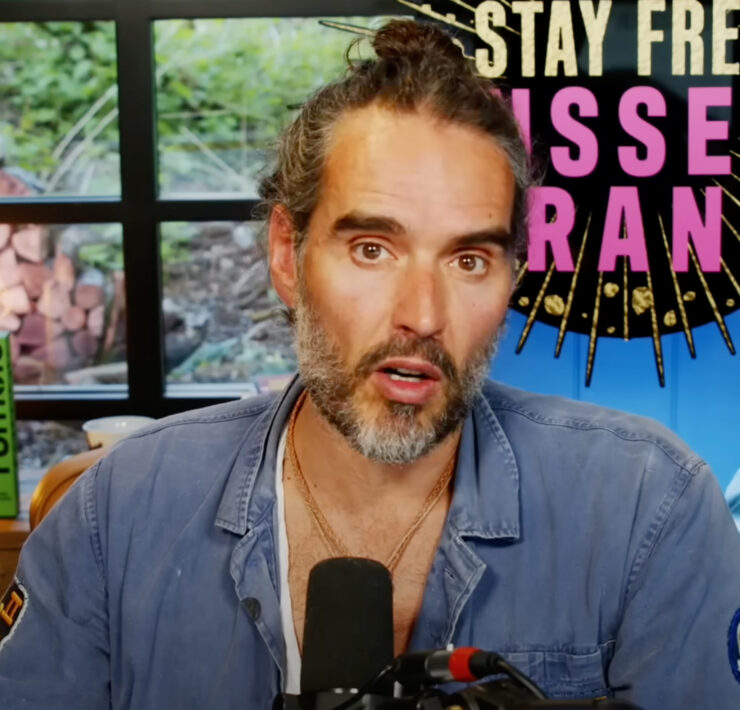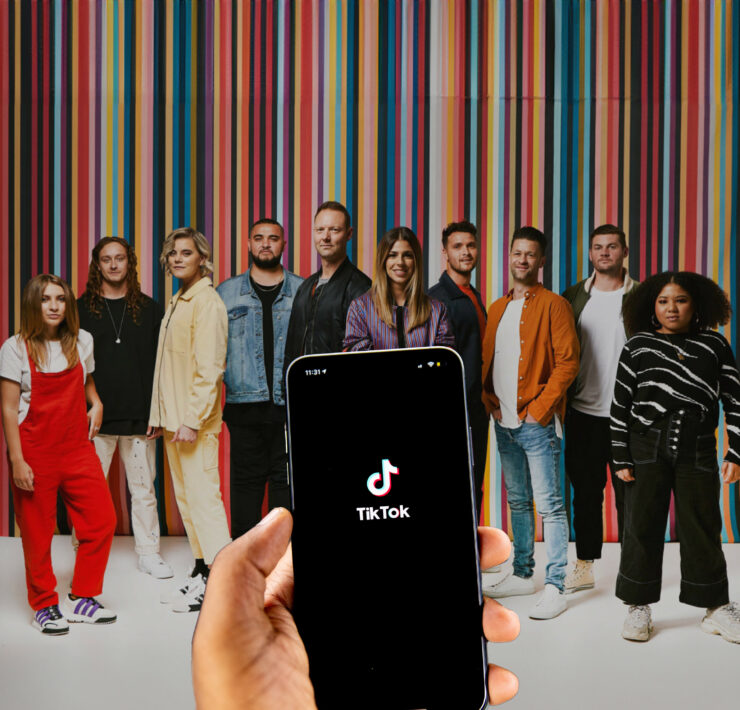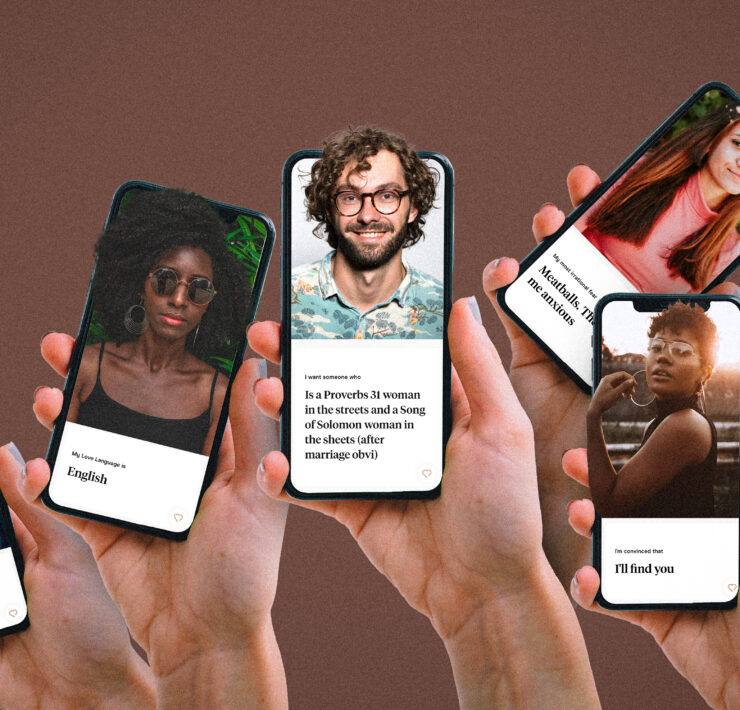We’ve all experienced it: You’re sitting in a room with friends and family, and suddenly you look up and realize everyone in the room is looking at their phones instead of talking.
An experience like this was part of what inspired Craig Groeschel, founder and senior pastor of LifeChurch.tv, to start researching the benefits and drawbacks of technology, and how we can have a healthy relationship with our phones.
We talked to Groeschel about his book, Hashtag Struggles: Following Jesus in a Selfie-Centered World, the pull of technology and the importance of disconnecting.
What made you want to write this book?
Well, I wrote the book because of my own personal struggles with social media and technology. A lot of people are almost shocked that someone who’s part of a church that really does love and leverage technology would write this book. Our church was blessed to create the YouVersion Bible app and so we obviously love technology, but I’d have to say I have a love-hate relationship with it as well.
The book is really about how do we put technology in its place. We don’t want to throw it out, because it’s so helpful in many ways. But at the same time, I refuse to be mastered by it and I want to help people find that same freedom.
I started studying the benefits of social media and technology—they’re all around us, we all see them, we all enjoy them. But I also started to study some of the negative consequences and how social media and technology are actually changing relationships for the worst.
How is technology changing relationships?
This is the challenge for many people now: The only way we know to relate with each other is via technology. People are starting to fear and avoid unfiltered communication because we’ve filtered everything we show. I only post what I want you to see and the images that I’m trying to portray. A lot of people now really don’t even know how to show who they really because they’ve built an online image. It’s really inauthentic and it’s creating more of a loneliness. In fact, sociologists have coined a new phrase called “deferred loneliness.” If I feel lonely in the moment, I might post a picture and then go back a few minutes later to see if anyone liked it or commented. And so it kind of quenches that thirst for just a moment, but I’m actually deferring the loneliness to later and the need is actually not truly satisfied.
We’re living for likes and we’re longing for love. We know there’s something more but we can’t put our fingers on it.
You talk about “resurrecting compassion,” and technology can desensitize us. Will you talk a little bit about that?
My gut would be that if we see a lot going on in people’s lives, we’re going care about them more. But the research shows the opposite. The University of Michigan did this big study on 14,000 college students and what they found was, with the rise of social media and technology, there’s actually a sharp decline of empathy and compassion. The study shows that we as a society care 40 percent less about other people than we did in the 1980s. That’s shocking: we care 40 percent less!
The study lists three theories why: One is that we’re more obsessed with ourselves. There are 93 million selfies taken a day. Any time I post something and you like it, my brain releases a little dopamine; I get a buzz. When I get that chemical hit, I’m becoming more selfie obsessed.
The second theory is that when we’re not interacting personally, it makes it easier for us not to care. If you’re hurting and you post, “Pray for me” on Twitter, OK, I’ll pray for you. But if you’re sitting next to me and I see your body language and I see your emotion, I care 10 times more—because we’re together.
And then the third theory says that overwhelming exposure to hard times actually desensitizes us. One article I read said that because everything looks equal on our phones, our brains don’t know how to distinguish what’s more important. For example, on your feed there might be a recipe for guacamole underneath a football player beating his girlfriend underneath a link to a funny cat video underneath some one talking about a reporter being beheaded by ISIS. They all look equal on your feed, and so your brain doesn’t really distinguish the ones that are so much more important. Therefore, we wake up and without even knowing it, we just care more about ourselves and less about others.
How do you think we guard against those negative aspects of technology?
We need to start with identifying and really acknowledging that this is something that is a real issue for me and then once we do, I’ve got a lot of practical steps I can talk through: how we manage it and how we can continue to let it be blessing but keep it from being a curse.
I recommend, if you find yourself in some sort of a dysfunctional relationship with technology, to start with a three-day technology fast. If you have to use tech for work, use it for work or whatever, but it can be as simple as a three-day social media fast. The first day is hard, the second day’s kind of awkward, then the third day most people start saying stuff like, “You know, all the sudden I was engaging with people”, “I started reading my Bible”, “I wrote a note to somebody” and “I went over to a friend’s house.” All the sudden, when they’re detoxing from the constant click-click, scroll-scroll, they’re re-engaging in face-to-face relationships.
At some point, I encourage you to do a seven-day technology fast. I do about six of these a year, and the reason I do them is because I need them. What it does is it forces me to see that no one is out there depending on something that I post. When I am forcing myself to detox from the constant online activity, suddenly I am engaging in a deeper and more meaningful way with the people around me. And then after seven days, I can re-enter the social media world with my mind reset.
My identity is not based on how many people are following me or who’s following me or whatever, it’s not based on how many likes I get, my mind has kind of been reset and I go back into it with a little bit purer mindset. If I’m in it too long, honestly I get sucked into it again, and so that’s why about six times a year I unplug and it really helps to cleanse my soul and it gives me a better perspective on what’s most important.
How do you think we can use technology in positive ways and to connect with people instead of isolating ourselves?
We’re so thrilled about the YouVersion Bible app. We’re literally seeing thousands and thousands of Bible plans completed every single day—not just started but completed. And so it’s such a great day to be alive and to be able to stay connected with people. But we have to understand social media and technology can supplement our relationships, but they cannot replace them.
Editor’s note: this article originally was published in 2015.
























